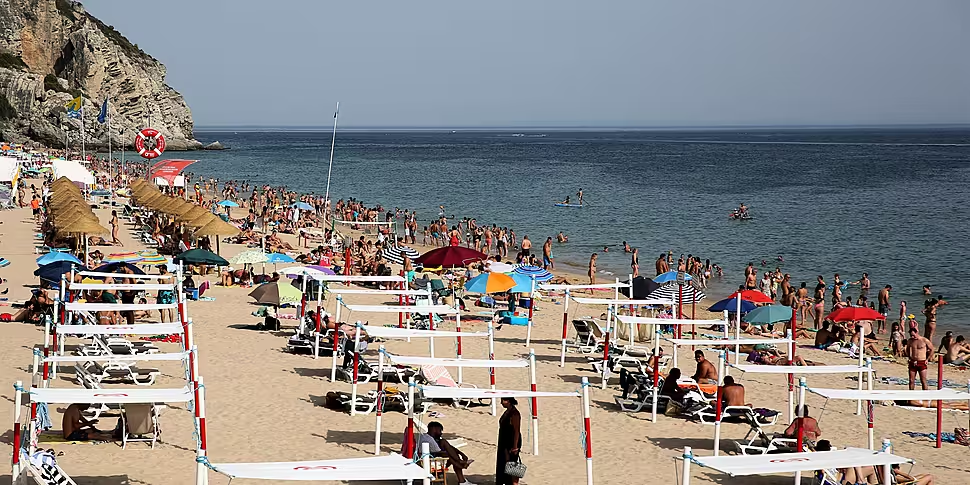After months of planning, rules around non-essential international travel have been eased.
The new EU Digital COVID Cert brings countries in the bloc under one system, allowing people to holiday without isolating if they've been fully vaccinated, recently recovered from COVID-19, or had a negative PCR test.
However, those jetting off for a sun holiday should be prepared for some small differences between how individual countries are implementing the new rules.
Michelle Walsh Jackson - travel expert with TheNovelTraveller.com - spoke to The Pat Kenny Show about some of those differences.
The key piece of advice is that those who are flying abroad should check the Reopen EU app or website, which will keep you up-to-date with the often rapid changes in the rules in each country.
Spain
Spain is the number one holiday destination for Irish people, but Michelle explained not everywhere in the country will have the same rules when it comes to COVID-19 restrictions.
She said: "There are 17 regions - including the Canary Islands - and they’re all operating at different status.
“In Tenerife, for example, last week four people were allowed dine indoors with a certificate. The smaller islands have a lower rate of cases, so you may see six people [allowed].
“As cases rise, you will see a variation in regions - I believe Catalonia has just introduced a curfew at night time. You also won’t have the same choice with hotels [as usual] - a lot of chains are only operating say 50% of their hotels.
“There is good news with Spain: in some regions, they are offering a COVID insurance to protect visitors. If you do fall ill, they will take care of your costs… if you’re under a package [deal] and staying at an accommodation.”
Currently, restaurants and bars in Spain are only open until 23:00 - meaning a night out mightn't be quite as long and leisurely as usual.
Portugal
Portugal, meanwhile, is one of the countries offering rapid antigen testing to facilitate indoor dining - it will take just 20 minutes to complete a test, at a cost of only around €3 or €4.
Again, there will be different rules in different parts of the country, and things could change rapidly depending on whether a region is considered level one (very high risk) or level two (high risk).
Michelle explained: “They will have lockdowns at short notice, usually in very small areas - like around Lisbon, where there might be meat factories or something like that.
“I wouldn’t be so worried about the Algarve. They have gotten through the COVID crisis really quite well.”
A negative test or digital cert will be necessary to eat/drink/stay inside in high-risk regions, although the rules aren't as strict for outdoor dining (up to six people per table outdoors, compared to up to four indoors).
Some rules also differ during the week compared to the weekend - while shops can stay open until 9pm during the week, there are earlier closing times at the weekend depending on the type of shop.
Greece
Greece is another favourite destination for Irish tourists, and those flying over now should expect different rules depending on where they're flying to.
Michelle said: “Crete has quite a high density of cases, whereas the Cyclades - which are the islands between Athens and Crete - [has] very different operations between different islands.
"On Thursday, for example, Ios was quite locked down and there was no live music. Live music has now [also] been stopped in Mykonos - that has changed quite rapidly.
“I can’t stress the importance of referring to the individual websites to see how things are changing. But [Greece] is very much open for business - it seems to be quite a good mood, because you’ve got the outdoor dining and everyone’s enjoying the beach scene."
Tourists will need a digital cert or a negative rapid antigen test to attend the likes of nightclubs (in the regions where they are open).
Italy
Michelle said Italy has been faring better than many other countries when it comes to controlling outbreaks - indeed, the entire country is currently considered a 'green zone' on the EU's travel map.
Michelle explained: "I was speaking to Top Flight, and they were very optimistic about Lake Garda region and Sicily.
“There are the usual restrictions and bookings need to be made.
“The regions which were having the most problems were around Sorrento and Naples. But they seem to be faring a bit better."
In many regions of Italy, bars and restaurants are currently open without time limitations - although indoor discos remain closed for now.
One key thing to remember for all the above destinations is that many parts of your holiday won't be back to the pre-pandemic normal.
Mask rules remain in place for the likes of shops, supermarkets and public transport across the EU.
Tourists may also find themselves having to book their sun lounger by the pool or on the beach, due to continuing social distancing rules.









